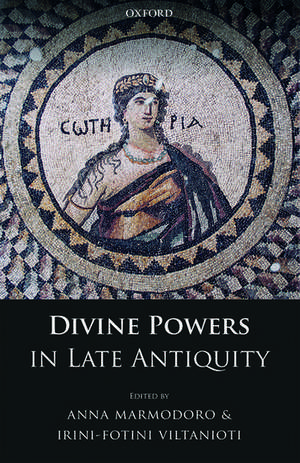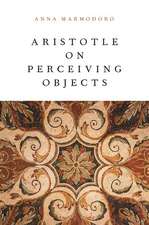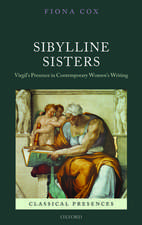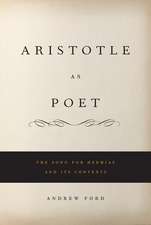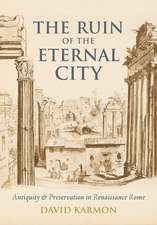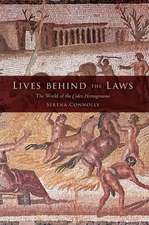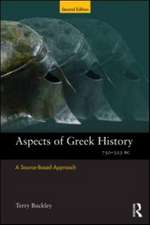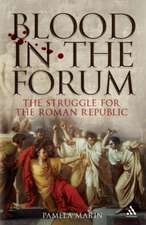Divine Powers in Late Antiquity
Editat de Anna Marmodoro, Irini-Fotini Viltaniotien Limba Engleză Hardback – 2 feb 2017
Preț: 614.00 lei
Preț vechi: 842.16 lei
-27% Nou
Puncte Express: 921
Preț estimativ în valută:
117.50€ • 121.39$ • 97.79£
117.50€ • 121.39$ • 97.79£
Carte tipărită la comandă
Livrare economică 14-20 martie
Preluare comenzi: 021 569.72.76
Specificații
ISBN-13: 9780198767206
ISBN-10: 019876720X
Pagini: 302
Dimensiuni: 161 x 240 x 22 mm
Greutate: 0.57 kg
Editura: OUP OXFORD
Colecția OUP Oxford
Locul publicării:Oxford, United Kingdom
ISBN-10: 019876720X
Pagini: 302
Dimensiuni: 161 x 240 x 22 mm
Greutate: 0.57 kg
Editura: OUP OXFORD
Colecția OUP Oxford
Locul publicării:Oxford, United Kingdom
Recenzii
The significance of this collection could hardly be expressed more succinctly. The editors, Anna Marmodoro and Irini-Fotini Viltanioti, have assembled an excellent set of twelve papers...An ingenious reading of a Christian thinker who used his intellectual heritage ingeniously and to its fullest
The editors, Anna Marmodoro and Irini-Fotini Viltanioti, have assembled an excellent set of twelve papers that address this question from two perspectives, a Platonic one from Plotinus to Proclus, and a 'Christian' one from Philo of Alexandria to the Cappadocian Fathers, perspectives that also inform the subdivision of the volume into two parts. ... The collection offers numerous significant insights into different approaches to 'power theology', that is, to the manner in which ancient and late antique thinkers speculated about the nature, efficacy, and manifestations of divine dynamis or potentia.
[A] collection of papers of high quality.
I highly recommend this foundational book to anyone concerned with the issues discussed herein, and all such readers can benefit from its persuasive analyses and full insight.
The editors, Anna Marmodoro and Irini-Fotini Viltanioti, have assembled an excellent set of twelve papers that address this question from two perspectives, a Platonic one from Plotinus to Proclus, and a 'Christian' one from Philo of Alexandria to the Cappadocian Fathers, perspectives that also inform the subdivision of the volume into two parts. ... The collection offers numerous significant insights into different approaches to 'power theology', that is, to the manner in which ancient and late antique thinkers speculated about the nature, efficacy, and manifestations of divine dynamis or potentia.
[A] collection of papers of high quality.
I highly recommend this foundational book to anyone concerned with the issues discussed herein, and all such readers can benefit from its persuasive analyses and full insight.
Notă biografică
Professor Anna Marmodoro specialises in metaphysics and its history; she has a background in ancient, late antiquity and medieval philosophy, and a strong research interest in the philosophy of religion and the philosophy of mind, and. She is the author of Everything in Everything: Anaxagoras's Metaphysics (OUP, 2017) and Aristotle on Perceiving Objects (OUP, 2014).Dr Irini-Fotini Viltanioti is aWiener-Anspach Junior Research Fellow at Wolfson College, University of Oxford and Associated Researcher at the University of Brussels and CNRS. She specialises in ancient philosophy, with research interests in classics and the history of religions. Viltanioti is the author of L'harmonie des Sirènes du pythagorisme ancien à Platon (De Gruyter, 2015).
